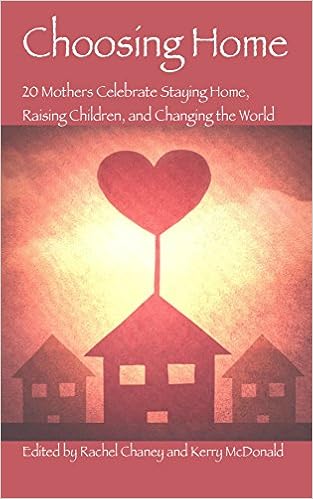When trying to envision what a world without forced
schooling might look like, public libraries are the ideal models.
Publicly-funded, sometimes supplemented by private donations, libraries are free,
self-directed learning spaces in the purest sense. Unlike public schools, they
do not discriminate by age. Patrons are not required to be there under a legal
threat of force. There are no regulations on what or how to learn. Aside from
some basic health and safety rules, community members are free to explore and
use the library as they choose, with librarians and assistants available to
help when needed. Many libraries host classes or activities, such as lectures,
computer classes, or English-as-a-Second-Language lessons, and story
times and book clubs. These events are available to all members of the
community and are entirely optional. There is no coercion: no one telling others
what they must learn or do.
Libraries are perfect examples of community-based, self-directed learning. This is why I believe that their summer reading programs are beneath them. Summer reading programs, while typically voluntary, follow a "schooling" model of education instead of the "learning" one that libraries naturally represent. Setting up reading as a rewards-based competition with certain milestones and markers and comparisons to others creates unnecessary obstacles to a child's natural curiosity.
Some libraries try to lessen the coercive burden of summer reading programs by encouraging children to create their own reading goals. For example, children may determine on their own which and how many books to read or decide to read for a certain number of minutes each day or week. This sounds harmless, maybe even helpful, right? The trouble is that by setting up any "goal" around reading it has the potential to externalize the process and take away from the intrinsic pleasure of reading. My friend Tracy recently wrote an excellent post about the problems with summer reading programs. She uses an ice cream analogy, saying forcing kids to read is like forcing them to eat ice cream everyday. It's completely unnecessary and misses the point that learning, reading, knowing are simply what we humans will do without the potentially undermining effects of coercive--even gently coercive--summer reading programs.
"If it weren't for summer reading programs my kids wouldn't read anything over the summer," some parents might lament. This is a common chorus that is often used to validate summer reading programs, but it ignores the much larger, more troubling problem: most kids are schooled to believed that reading is work to be avoided. This is axiomatic given the ways in which schools teach reading. Often reading is taught before kids are ready to learn it, using methods and materials that are completely uninteresting and artificial, with quizzes and comparisons and, increasingly, high-stakes tests to measure alleged competency.
Most kids have the natural love of reading schooled out of them, and summer reading programs simply perpetuate this framework of forced reading. The vast majority of children who are given the freedom to learn without school learn to read on their own, at their own time and pace, following their own interests. My son learned to read by first reading the lyrics to his favorite rock and roll songs, then instruction manuals while helping Brian to fix things around the house, and Amazon reviews for items he wanted to purchase, and, yes, Captain Underpants. He loves to read and would never imagine it to be drudgery or something we had to cajole him to do.
But, some might say, what about the children who aren't surrounded by literacy on a daily basis, who don't have parents who love to read, who don't have mountains of books in their homes? What about them?
I would say it's all the more important for those children to learn to appreciate reading for the sake of reading, and not for the sake of a sticker. Libraries and other community-based organizations can use summertime as an opportunity to ignite--or reignite--a child's natural curiosity; to help a child who is deprived of home-based literacy to discover the joy and adventure that can be found in books; to help a child understand that why she may want to dig into books all summer is so much more than a check-mark on a library form or the promise of a plastic frisbee.
Libraries have a special opportunity in summer to undo some of the damage of forced schooling and help children to reconnect with their innate learning instincts. Children are natural learners. They don't need to be coerced or cajoled into learning. They don't need competitions and rewards, however benevolent they may appear. Children need to be given the freedom to learn what they want, when they want, how they want with helpful facilitators available to assist. They need to be given the freedom to ask their own questions, to find their own answers, to uncover their own interests without others dictating the way.
Libraries are perfect places of community-based, self-directed learning that support all members of a community in learning naturally, without coercion. Late-nineteenth century steel magnate, Andrew Carnegie, who created many of this country's first public libraries, stated: "A library outranks any other one thing a community can do to benefit its people. It is a never failing spring in the desert."
Libraries are uniquely designed to support and encourage natural, self-directed learning. It's what they do best. They can help us all move from a schooling culture that often views reading as a chore, to a learning culture that sees reading as a joy. Avoiding summer reading programs is a good place to start.
























When my now adult kids were small, we'd go to the library all the time. When I was pregnant with the youngest, the oldest told the librarian first, because she wanted information about babies. We participated in a plethora of programs, and my kids could sign up for the summer reading programs if they wanted to. But they had to keep track of whatever they wanted, and they signed on the dotted line. The librarians didn't know how to deal with this approach, and challenged me. I told them that I felt that reading was its own reward, and that if my kids wanted to participate in the program, they'd be responsible for managing it. Done.
ReplyDeleteOne of my daughters decided that she'd do the games because she liked them, and that, instead of the "cheap plastic toy", she'd like to go to the bookstore and buy a book. Which is exactly what we did.
Thank you for writing this. I cringe when I go past the summer reading contests and school-style programming. I have marveled over the years as my kids grow how obsessed we are as a culture with Reading! Any time, anywhere!! It leaves me wondering quite often why we are so scared of our kids not reading/not liking reading/not sharing our reading pleasure...it would be neat to learn more about entire societies and cultures where reading wasn't a factor in human success and happiness. Thanks for this one.
ReplyDelete